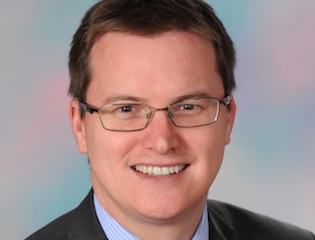Like many, I was expecting a short announcement during the Autumn Statement followed thereafter by the publication of pages of detail explaining the new pension death tax rules. I certainly wasn't expecting to read about it on my BBC News app on the Sunday night before the Conservative Party conference.
The odd way in which George Osborne announced the new pension death tax charges left me thinking that this was motivated purely by political gain, rather than a rational way of encouraging saving. There has been scant detail on the changes since – one webpage and a couple of pages from HM Treasury – which backs up the theory that this was more about votes than building a robust platform for future pension rules.
It's so easy to get excited about the prospect of pensions being an even more tax-efficient means of saving on top of the freedoms announced earlier in the year, and I feel there is a genuine desire by Government to encourage pension saving. But I am worried about whether these rules are built to last (three months, let alone three parliaments).
I read that Treasury financial secretary David Gauke described the 55 per cent death tax charge as a "pretty punitive rate". [source: Money Marketing]. This, of course, is a change from the Government's view in 2010 when it reviewed the requirement to annuitise at age 75 that 55 per cent was "the appropriate level of recovery charge for death benefits." [Source: gov.uk]
Describing the rationale for the switch to tax-free benefits, he is reported to have said that, "it wasn't sensible to have a big distinction behind the treatment of a crystallised pension pot and an uncrystallised pot. There was a strong case for consistency". He went on to say, "We didn't want anyone to be worse off."
This sounds fair enough and when I first read it, I thought it was to be commended. But when you start looking at scenarios, in the drive to making sure a few people aren't worse off, huge contradictions have been introduced which highlight the unfairness of being the wrong side of a tax rule.
{desktop}{/desktop}{mobile}{/mobile}
There is a clear discrepancy between two widows, whose husbands died either side of age 75. One would seemingly receive an income tax-free for life, whereas the other has to pay income tax. Perhaps when we see draft legislation, the tax-free income will only be available up to age 75? But could this be a red herring? If this happenes then the widow could just draw the whole fund as a tax-free lump sum and then live off that.
What about those already in a receipt of a drawdown pension, who perhaps started drawing their income only a few months ago? Is it right that they are condemned to taxable income when, had the designation for drawdown been delayed, they could have received a tax-free income? I am already aware of some widows in need of money, but equally wanting to delay switching on income until next tax year in light of the recent announcement. Perhaps the rules will provide that income from existing dependant's drawdown funds will be tax-free – has this been included in the policy costing?
What about those who have secured an annuity in the last few months? The rationale for doing so changes completely. They may have chosen a drawdown product instead, or a value protected annuity. This seems manifestly unfair. Tax-free income could make a huge difference to those widows and widowers.
Is it fair that lump sums paid out in good faith in the months before 29 September 2014 should be taxable at 55%, when had they been delayed by good fortune or by bad administration, the payments would be tax-free. It would be normal to link the tax rate to the date of death to avoid such random, rather than arbitrary, unfairness. I would suggest the government allows tax paid on payments made this tax year to be reclaimed if the rule about date of payment is to remain.
Perhaps the situation that is most likely to occur is the one that seems most odd. A married couple lives off taxable income from a drawdown fund, but on death that income becomes tax-free. The survivor will thus be able to receive more income even though their spending is likely to be lower. And this situation only arises, of course, if the right person dies first.
It all adds up to a great political statement, but the lack of detail and apparent investigation is worrying. I find it hard to support a system which introduces such disparities.
With some apprehension, I suggest perhaps that there is a need to get rid of rules of both age 75 and death as a differentiator when it comes to pensions. The savings vehicle should provide a tax-free element, payable when the member accesses funds, or on death if the tax-free element has not been drawn.
The remaining funds should provide an income for the member and their spouse/partner. The member can direct whether it is taxable on the member or their spouse/partner, to allow sharing of tax allowances. On death, the drawdown income can be paid to their issue. As such, a drawdown fund looks more like a trust fund, one that hopefully would be very popular.
We don't need the complication of pre and post vesting, pre and post death, pre and post age 75. We just need an attractive product that encourages saving and will outlive parliaments.
Andrew Roberts, Partner, Barnett Waddingham LLP
@andrewddroberts

